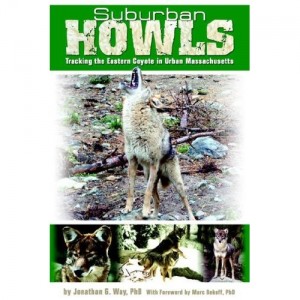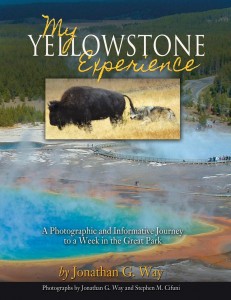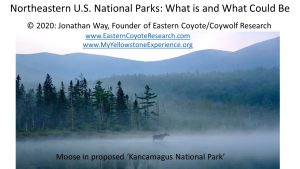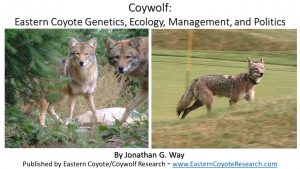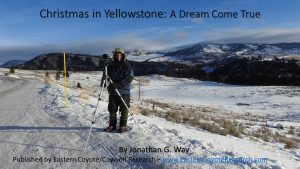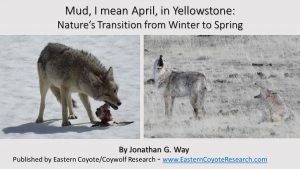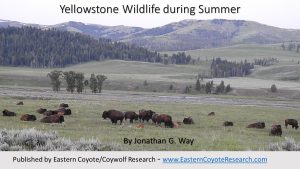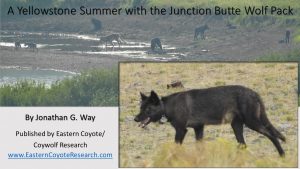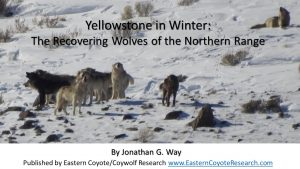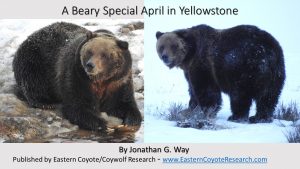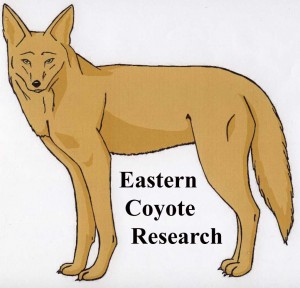Is Coyote/Coywolf management inherently racist?
Recently I read this book on Cougars (my favorite species of cat) and saw the following quote which caused me to think for many hours about this comment:
“Hunters and (state wildlife) agency personnel often show limited empathy and openness because of their orientation toward self-enhancing power and achievement and political or other conservatism. Self-enhancing and conservative values have been closely identified with prejudice, unwillingness to engage constructively with unlike others, and a preference for power arrangements that perpetuate inequality.” – from People, Politics, and Cougar Management by David Mattson and Susan Clark, in Cougar Ecology & Conservation (p. 212), Edited by Maurice Hornocker and Sharon Negri.
My thoughts from the quote: While this is certainly a stereotype and obviously not all hunters are prejudiced/racist, there is an element of truth to this statement. The many people that I have met that hunt and kill as many “coyotes” as possible seem to fit this statement to a T. They favor one species over another (“reducing the coyote population” without knowing what the effect is on the system). There are no doubt many other hunters that agree with my beliefs on coyote management like: the importance of predators in an ecosystem, having bag limits on them just like all other big “game”, the unsporting use of bait. These folks seem to be a much different group of people that would indeed be willing to work with others to have fair wildlife management practices. Essentially, they might listen to the non-hunters viewpoint. However, those folks also don’t have much say in current wildlife management which appears to be dictated by the vocal, and often “extreme” hunter. It doesn’t take a stretch to think that these self-enhancing values could be extended to other groups of humans (i.e., racism).
In 2007, the coyote hunting season was extended to almost half a year including allowing an unlimited take by an individual hunter – literally meaning that someone can slaughter as many as possible for any reason. You can use bait, night hunting, predator calls, and dogs to kill them, and there is no wanton waste law – meaning that hunters can kill them just to kill them and you are technically allowed to intentionally waste something (i.e., their bodies) negligently or inappropriately. The commission never revealed how many people were for or against the hunting extension but I bet the majority (certainly including me) wrote against it, and a few public meetings that I attended (or people reported to me) were heavily against the extension. The way that state wildlife game commissions have public meetings set up to have seemingly pre-determined outcomes, I believe is just another self-serving form of government that is discriminatory and favors certain groups over others – often with no scientific evidence to support the viewpoint (i.e., there is no scientific evidence that increased hunting of coyotes will reduce perceived problems). Furthermore, it doesn’t take a stretch to look into people’s worldviews and see the racist or hateful side of a person when they favor one species (game) over another (predator) and do things like leave bait piles out in their back yard and pluck coyotes/coywolves in the middle of the night, or kill as many as they can often just to kill them. All these are legal and promoted by most state wildlife departments.
Furthermore, wildlife management doesn’t acknowledge anything about the importance of the individual or the social, sentient, family-oriented nature of coyotes and coywolves. State agencies have utterly ignored my (and others) peer reviewed publications on these topics and continue to follow the outdated model of allowing unlimited bag limits to hunters because the population won’t go extinct. Well the local loss of individuals in a given area can be significant and is unneeded for many reasons both for ethical and moral reasons and for wildlife watching and ecological reasons. And they have absolutely no data on the ecological importance of killing predators (often done for the sake of killing them). Also, what about the wildlife watcher (many hunters included) that likes to watch a given individual, only to see it pointlessly shot and killed for fun (“recreational hunting” being the official term)?
In summary, without having equal representation, I believe wildlife management is inherently self-serving, prejudiced, and outdated in its clear stance of favoring hunters (especially extreme ones) over all other “users” of wildlife and perpetuating cruel practices of hunting because it has traditionally occurred. I especially believe that coyote and coywolf hunting brings this issue to a head based on the individuals that I have met over the years that participate in these currently legal and often inhumane activities with little scientific evidence to support their need for endless killing. I would be fascinated for a sociologist(s) to do a study/survey of people that participate in these unregulated slaughters and the people that allow this (and ignore all other voices). I think the answers they get would be very telling about current wildlife management. Certainly, this post is a taboo, “the proverbial Elephant in the living room that everyone knows about but ignores”. However, it is irresponsible to call these activities science-based and for state game agencies to legally allow someone to kill unlimited numbers of any animals out of hate or recreation, and to justify it based on the species not being severely affected by our activities. There needs to be a change in the composition of state wildlife departments and their extremely pro-hunting commissions to change this.
“Racism and cruelty and the manifestation of killing needlessly are all symptoms of the same disease – a damaged spirit.” Marie Thomas
